The current national flag of Australia has
evolved from its origins in a flag design competition held after the
establishment of the Commonwealth of Australia.
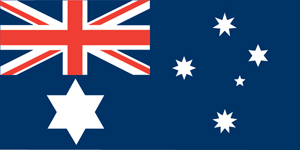 |
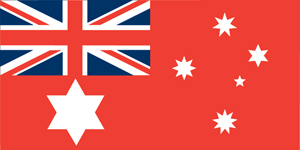 |
On 3 September 1901, two designs were
announced as the competition winners - a blue flag for use by the
government and the same design with a red field for use by merchant
ships. Ordinary Australians continued to use the British Union Jack on
land. The competition design featured a large six pointed star to
represent the Federation of the previous colonies, now states. The stars
of the Southern Cross had different numbers of points to indicate the
relative brightness of each star.
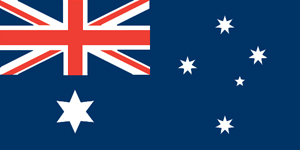 |
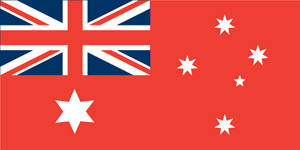 |
In 1903 the British Admiralty approved
the use of these new flags. The Southern Cross was simplified by using
only seven-pointed stars for the four brightest stars and a five-pointed
star for Epsilon Crucis.
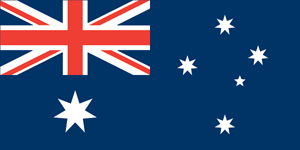 |
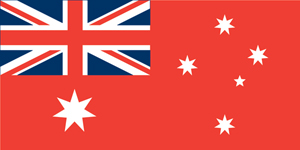 |
In 1908 the Australian Government decided
to increase the number of points on the large Commonwealth Star to
seven in order to represent the Australian territories collectively.
The blue version of the Australian National Flag was used by ships owned
by the Commonwealth Government and it was flown on government owned
buildings. For many years, private citizens were not permitted to use
the blue Australian national flag. The red version was used by privately
owned ships registered in Australia and as there were no restrictions
on its use on land, it was also used by private citizens, often with the
British Union Jack on a second flag pole.
In 1941 official restrictions on private
use of the blue Australian national flag were removed, but it was not
until 1954 and the enactment of the Flags Act that the Australian National Flag was officially designated for use by all Australians.
No comments:
Post a Comment